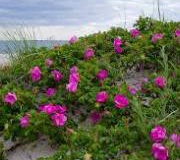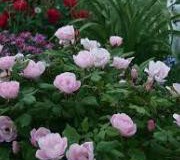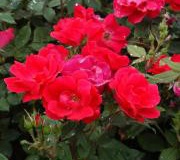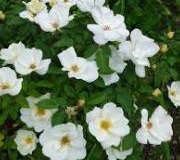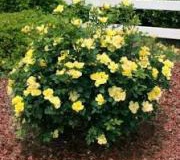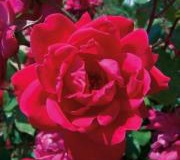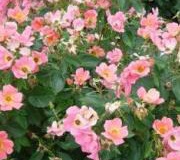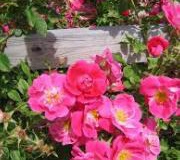Take Time to Smell the Roses
Modern Garden Roses – Now with easy-to-grow varieties!
No other plant can compare to the rose for its long bloom time, extensive range of colors and sizes and exquisite fragrances. Roses come in every size, shape and color and there is always a perfect variety for every situation.
Many people love to admire roses in other people’s yards, but don’t want to take the time that many types of roses demand.
Now, there are great new roses that look beautiful, bloom prolifically, smell wonderful, are disease resistant AND low maintenance.

Jobe’s Landscape can assist you in selecting the right varieties for your location in the Rehoboth Beach, Lewes, Bethany Beach, Ocean View, Lewes, Milford & Milton, Sussex County, Delaware area. Designing your landscape with roses will give you a continuity of bloom and beauty for formal, semi-formal and informal settings. There are even ideal varieties for planting in containers, using for a ground cover or as a hedge.
Whether your needs are for residential or commercial properties, the vast array of roses will definitely provide one that is appropriate.
Although a true rose classification system can be extensive, here is one that will give you a general understanding of the types and their uses. Two broad categories exist – Modern Garden Roses and Old Roses.
Modern Garden Roses
This type began with the hybrid tea introduction. The hybrid tea was widely accepted because it bloomed more than one time during the season. The hybrid tea goes through “flushes”, re-blooming every 4-6 weeks through the growing season.
- Shrub roses – varieties range from 3 feet to 10 feet high, most are usually taller than most rose “bushes” and make great specimen plants in the landscape. Many bloom continuously from late spring until first frost. This group is broken down even further.
- Ground cover roses – these are ideal for covering larger areas of ground, slopes or banks for masses of color or for the front of the perennial border.
- Bush roses – usually known as “hybrid tea” roses, the bush roses are ideal for cultivation in groups and popular in “formal” rose gardens. They usually produce one flower per stem and are the type that we know as “long-stemmed” roses. Many of the hybrid teas are the type that do require more care and maintenance.
- Floribunda roses – a bush rose with a mass of flowers in clusters on each stem, ideal in the landscape and perennial border – very showy and free flowering.
- Polyantha roses – small double flowers born in large clusters with leaves small than the Floribunda.
- Miniature roses – ideal for the front of the border or in pots, these have miniature flowers, foliage and growth.
- Climbing roses – this group includes both climbers and rambler are ideal for scrambling up trees, along fences or walls. The difference between a climber and a rambler is the thickness of the canes – climbers are stiffer than the ramblers.
Old Roses
Roses have been grown for centuries and these older types are known for their very heavy fragrance and romantic cupped shape. One flower will fill an entire room with its perfume. Additionally, the old roses usually bloom just once during the season, like tulips or peonies or many other perennial flowers.
- New category of roses:
- David Austin English Roses
- This new class combines the heavy fragrance and cupped shape of old roses with the repeat blooming of the hybrid tea. The English roses are magnificently beautiful and should be included in most every landscape.
- Seaside Roses, called Rugosa roses love the sea air and salt spray and grow fantastically well in our beach areas.
Do you think roses are too hard to grow? Today, there are some varieties that are highly disease resistant and very easy to grow. No regular spraying schedules of toxic pesticides and fungicides. Our plant experts will help you plan, select, plant and care for your new rose plants that will provide years of pleasure.
